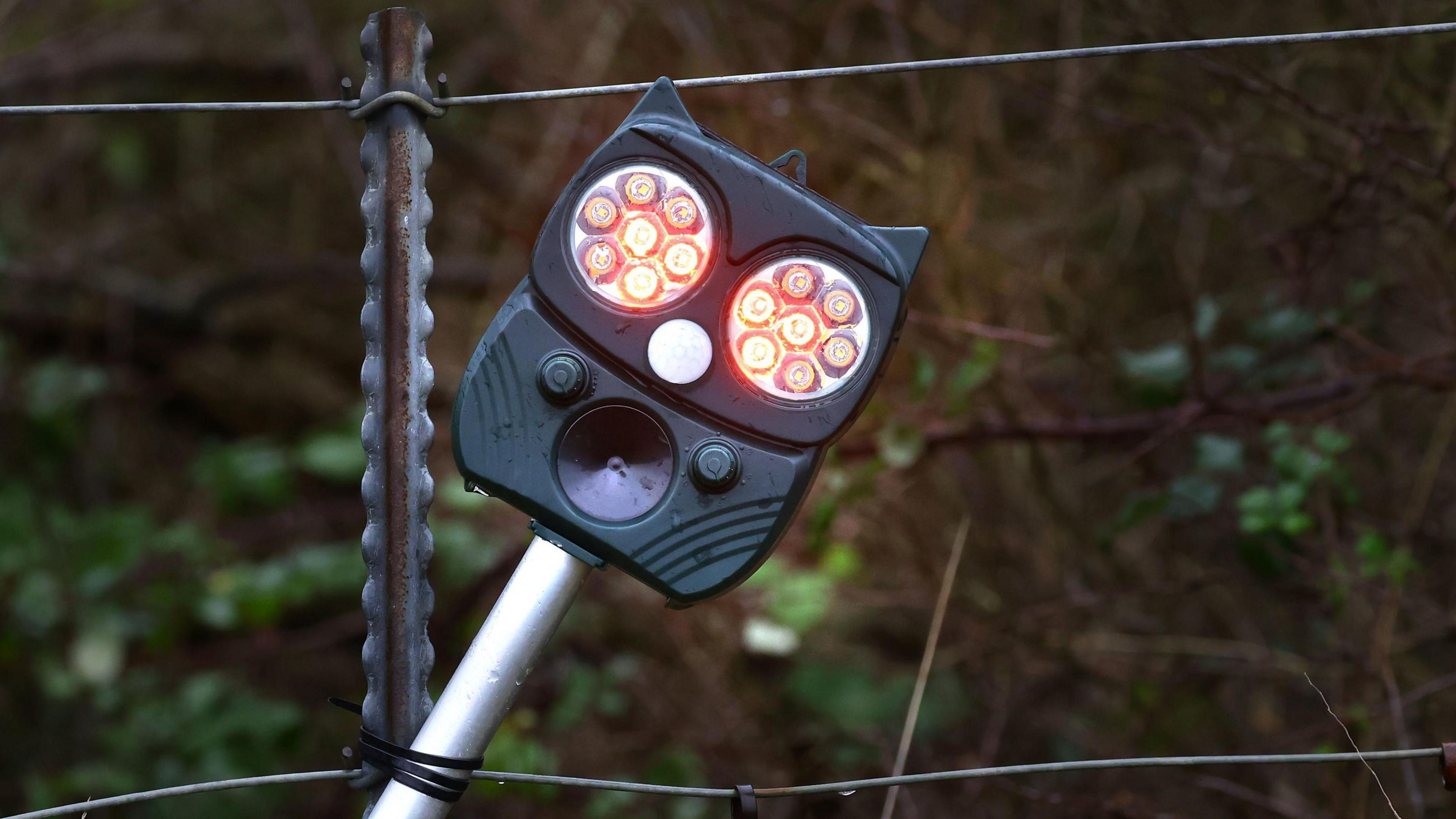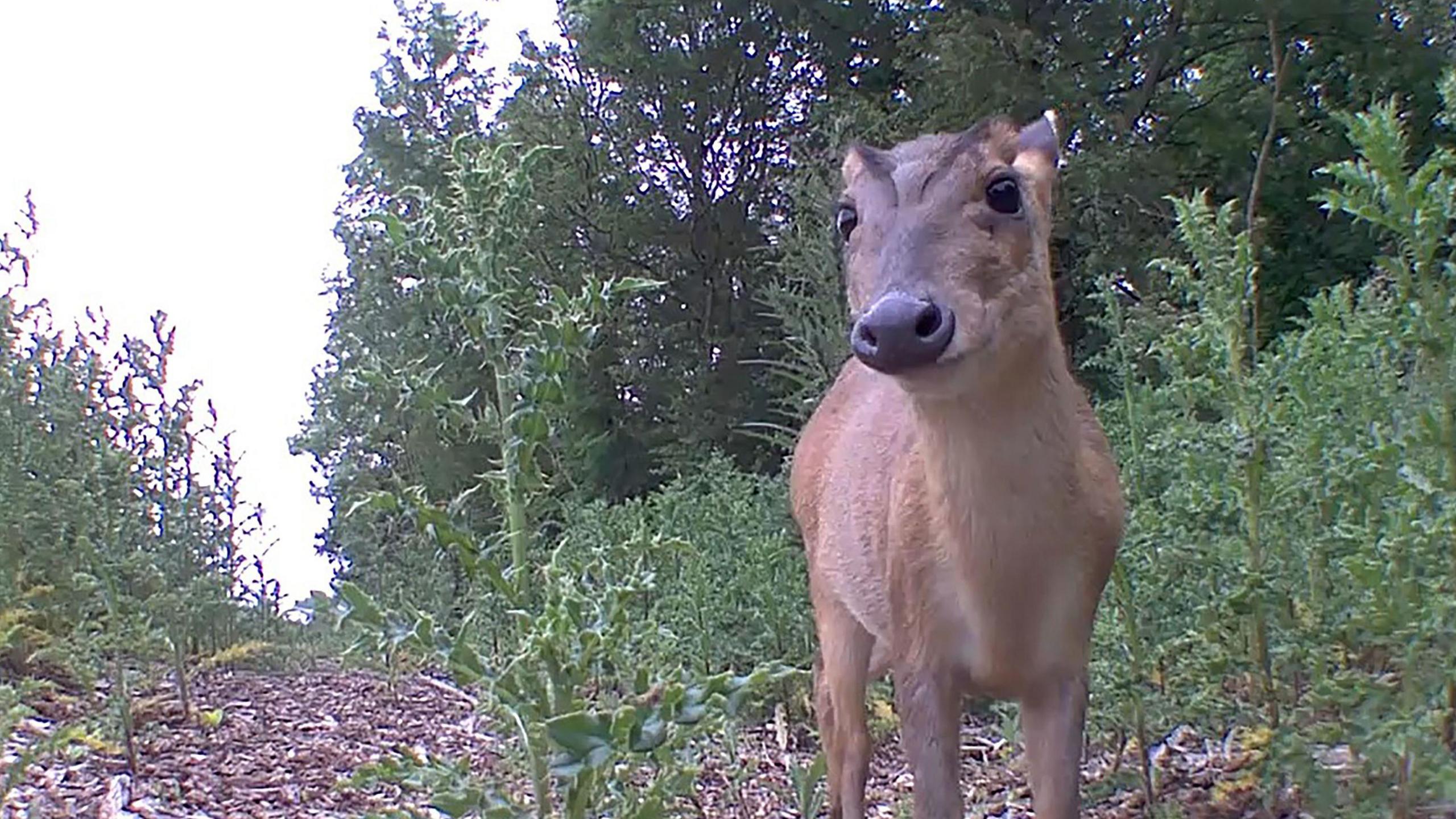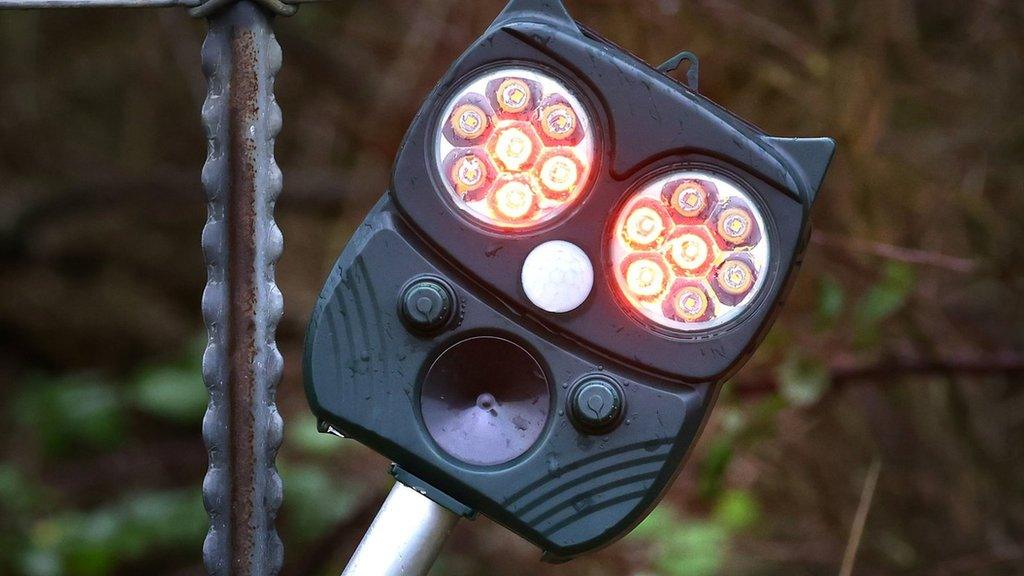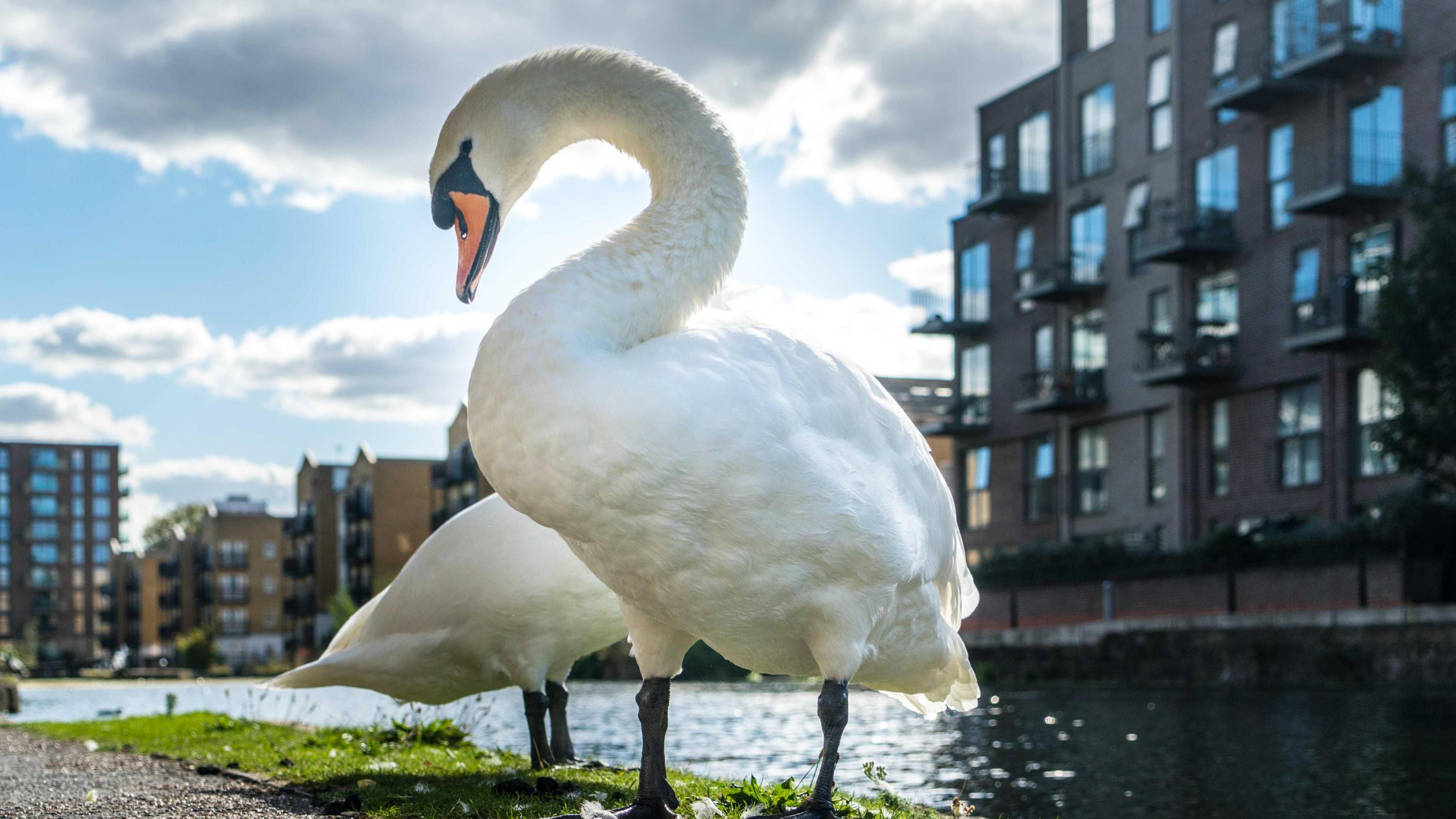AI technology keeps 6,000 deer from rail routes

AI technology stops deer being harmed on rail routes, as well as preventing passenger delays
- Published
AI-based technology has stopped almost 6,000 deer from crossing busy rail routes in England.
Network Rail and train operator LNER installed the deterrent system at Stoke Junction, near Stoke-on-Trent, in May 2023 before expanding the scheme to Little Bytham, near Grantham, in December 2023.
It uses AI to identify when a deer approaches the tracks and activates audible and visual alarms.
A Network Rail spokesperson said it was "great to see the positive outcome" of the trial and the scheme would be rolled out further in the future.
Johanna Priestley, route engineer for Network Rail's east coast route, said the railway is a "dangerous place for animals" and the measures would help "keep passengers and train crew safe, as well as protecting deer from the railway".

AI cameras are able to spot deer near the railway lines
Data from the trial period showed 2,765 deer were deterred at Little Bytham and 3,147 at Stoke Junction.
The automated system uses sensors to identify when a deer approaches the tracks, which triggers alarms that deter the animal.
A camera monitors its movement until it has been diverted to a safe distance.
Incidents of animals on Britain's railways are recorded about four times a day on average, figures from Network Rail show.
It said there were 1,432 reports in the 12 months to the end of March.
Deer, which tend to live in rural, forested areas which are often alongside the railway, topped the list, with 349 incidents.
Sheep followed with 177 incidents, birds at 172, cows with 156 and swans at 143.
The Department for Environment, Food and Rural Affairs estimated the deer population in the UK had increased from 450,000 in the 1970s to two million today - the highest levels for 1,000 years.
It said milder winters, increased woodland and agricultural changes are some of the factors linked to this rise.
Follow BBC Lincolnshire on Facebook, X (formerly Twitter), external, and Instagram. Send your story ideas to eastyorkslincs.news@bbc.co.uk, external
- Published20 December 2023

- Published20 August 2024
